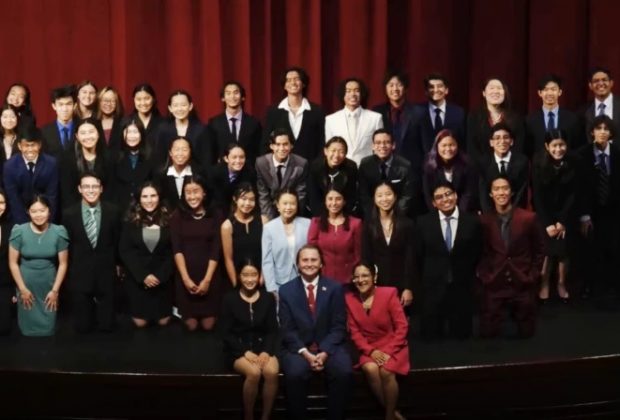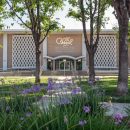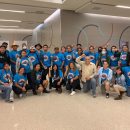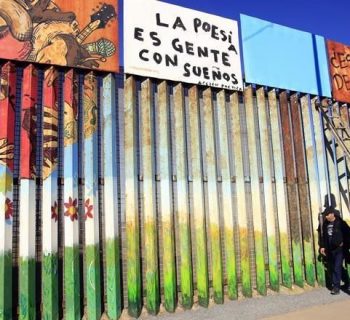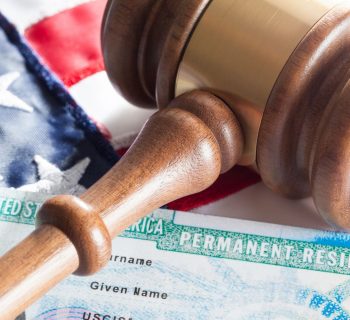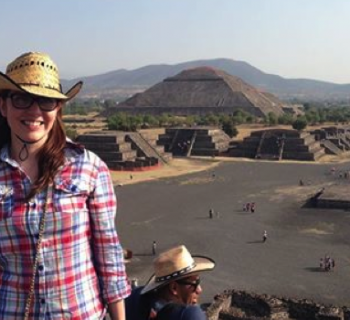By Frank Shyong | Los Angeles Times | JUN. 24, 2022 | Photo by Derek Yuill
What Southern California institution has won five championships over the last two decades and has never failed to make the postseason?
Hint: It’s not the Lakers, Clippers or Dodgers.
I’m speaking of the speech and debate program at Gabrielino High School in San Gabriel. For more than two decades it has utterly dominated the Southern California speech and debate scene, qualifying for nationals for 26 straight years. Coach Derek Yuill said he can count the number of schools the program has lost to on one hand.
Five Gabrielino students have won national championships, and the team has been named one of the top 20 schools in the nation for the last 15 years.
The team counts Johns Hopkins professors, NASA researchers and public defenders among its alumni.
And it’s achieved these results with teams comprised largely of Asian and Latino students, many of whom are English-language learners and immigrants themselves.
When I spoke to assistant coach Eric Chen, the team was flying back from Louisville, Ky., fresh from another top 20 finish at nationals.
“These kids have an incredible work ethic and that just translates to a lot of success,” said Chen, an alumnus of the Gabrielino debate program himself.
I’m a high school speech and debate alumni too, though I competed in public forum debate — an event that I’ve been told is for the intellectual lightweights of the speech and debate community.
If you think about it, it makes a lot of sense that people new to English and this country might make for such skilled orators.
Debate checks a lot of boxes for immigrant kids, other than looking good on a college application.
First and foremost, it draws on skills we’ve already honed growing up in families that sometimes rely on us to be their voice. If you have successfully argued for credit card bills to be consolidated or fielded human resources emails for your mom’s job as a teenager, debating another high schooler just feels easy.
Responsibilities like these are an early education in the power of language and oratory. It teaches you how valuable language fluency is by showing you how painful things are without it.
Second of all, it’s an extracurricular that doesn’t require expensive fees and equipment to participate — all you need is a suit and a ride.
And thirdly, it is an academic activity for which you can receive actual trophies if you do well. What better material proof that you are fulfilling your parents’ American dreams than trophies for being a good student?
For a lot of immigrant kids, myself included, debate is also what teaches us the value of disagreeing.
“Growing up, we’re taught to speak to authority in a certain way, to defer,” said Sean Lo, a 31-year-old alumnus of the program now working as a public defender in Portland, Ore. “Debate helps you learn to advocate for yourself and on behalf of others.”
The Gabrielino debate team is a tight-knit group of about 100 students, said Luccia Yacoub, 18, who served as one of the team captains this year.
Practices often don’t end until the sun goes down, and some students spend several hours a week rehearsing.
“If you are really in-n-n-n speech and debate? You gravitate towards it whole time and it’s like everything you do,” Yacoub said. “Speech and debate was the thing that really identified me in high school.”
Yacoub is Egyptian American and her family members are Coptics, a small, Christian religious minority in the Middle East, and she says her time on the speech and debate team has inspired her to be more of an advocate for her culture.
“I feel like my people don’t have the chance or opportunity to speak up for themselves,” Yacoub said. “Debate has helped with that.”
Yacoub graduated this year and plans to attend Johns Hopkins University with a double major in premed and public health. She wants to become a pediatric oncology surgeon who also advocates for access to healthcare for underserved minorities.
But before all that, she’s got a more immediate goal.
Johns Hopkins has a debate team, and “I’m pretty sure I’m going to be on it,” Yacoub said.

